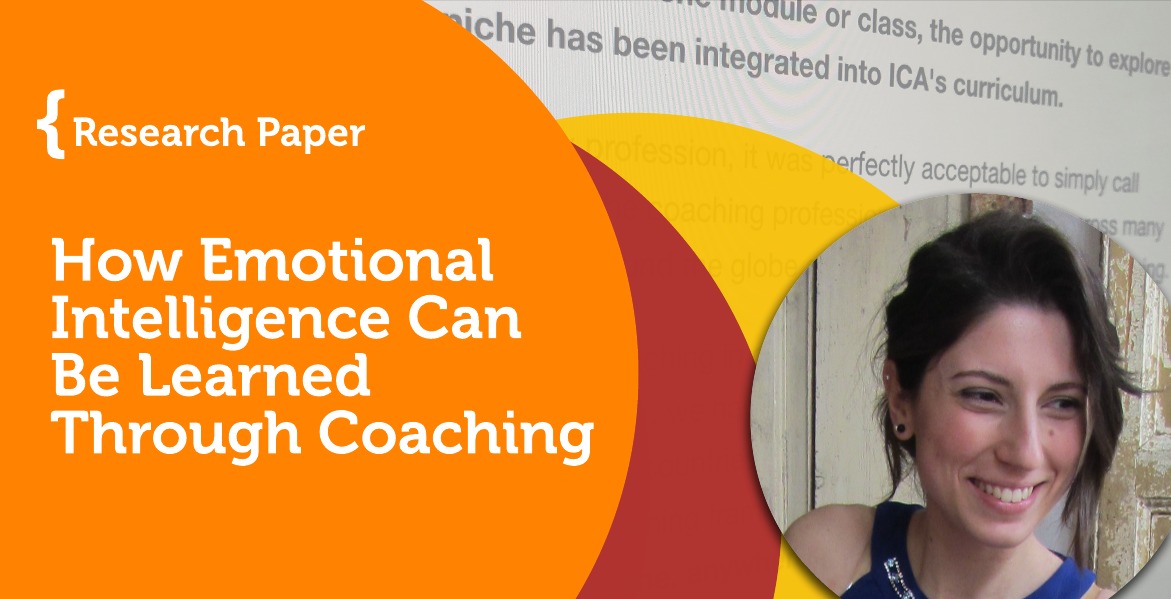
Research Paper By Martina Malavenda
(Relationship Coach, ITALY)
Introduction
Emotional intelligence is defined as “a set of emotional and social skills that influence the way we perceive and express ourselves, develop and maintain social relationships, cope with challenges, and use emotional information in an effective and meaningful way. – Daniel Goleman
Emotional intelligence (EI) is the general catchphrase for the ability to know our feelings, clearly sense them when they occur without becoming overwhelmed by them, manage our emotions and the following actions accordingly to a given situation and also recognize the feelings of others and skillfully interact with them.
Emotional competences can be learned, developed and practiced to achieve outstanding results in the workplace, but also to be able to resolve conflicts and challenges in our daily life and to have healthier and more fulfilling relationships within our family and our spouses.
The more emotionally attuned we are to our feelings and those of people around us, the more appropriately we can respond to the given circumstances. When a very critic situation occurs, we can train ourselves how to be calm. When there’s a happy moment in our lives, we can let us feel that happiness and be vulnerable and warm with people around us. When we feel frustrated or incredibly angry, we can train ourselves on how to cool off and better respond. Understanding a situation and channeling our emotions accordingly is the core of EI.
5 key components of Emotional Intelligence
Emotions can play an important role in our lives: As Goleman suggests in his book “Emotional intelligence”, they are essentially impulses to act, action plans Nature has endowed us with to be able to handle, in real-time, life’s emergencies and much more. Emotions can help us survive, thrive and avoid danger, they motivate us to act quickly and take actions that will maximize our chances of survival and success.
Naturalist Charles Darwin believed that emotions are adaptations that allow both humans and animals to survive and reproduce. When we are angry, we are likely to confront the source of our irritation. When we experience fear, we are more likely to flee the threat. When we experience love, we might seek out a mate to share our lives with and reproduce.
They also play an important role in our daily life decision-making, they allow other people to understand us, they let us do the same in our turn and to be able to connect on a human level.
Emotions are a complementary part of our brain’s rational side, they are as important as this latter and finding a good balance between these two “brains” (emotional and rational one) is essential to living our life fully. Psychologist and best-selling author Daniel Goleman has suggested that there are five key components that, if developed, let people achieve a great level of emotional intelligence and find a good inward and outward balance.
Conclusion
As we have seen, reaching out to a good level of emotional intelligence can help us in many ways, particularly to be able to develop healthier relationships with our own selves and others. This research paper has been created with the intent to really appreciate this complex but amazing and powerful world of emotions and to understand how to channel it properly. My Irish dance teacher often says that power without control is chaos and brings nothing good. This is the point: coaching is a magnificent key to find that balance between energy and discipline and get everything we desire and deserve in this life and, sometimes, much more.
References:
Goleman Daniel, “Emotional intelligence”, BUR Rizzoli, 1999
https://learnsite.icacoach.com/english-campus/frameworks-models-course/emotional-intelligence/
https://www.verywellmind.com/components-of-emotional-intelligence-2795438
https://www.verywellmind.com/the-purpose-of-emotions-2795181
https://www.medicalnewstoday.com/articles/190522#1
https://www.verywellmind.com/what-is-empathy-2795562
https://www.verywellmind.com/what-is-social-intelligence-4163839